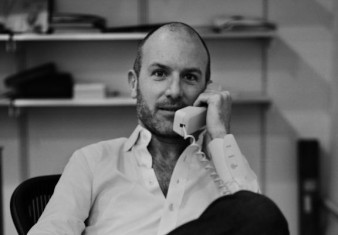
Lorin Stein, editor of The Paris Review, tells us that if you think short stories are dead, you aren't paying close enough attention.
For most of my grownup life I edited books, most of them novels. I read short stories now and then, the way book editors do, in a professional way, because they're a good place to spot talent. And every once in a while I'd teach a class where we read short stories, because – well, because they're short. You can read them closely. They lend themselves to discussions of technique. And certain short story writers I loved, and now and then I was lucky enough to edit one of their collections. But novels were what I thought about most of the day. And at the end of the day, when I took a book to dinner or to bed – that is, when I read for pleasure – the book I took with me was almost never a book of stories. There are so few exceptions to this rule I think I can actually count them: books by Alice Munro, Harold Brodkey, Chekhov, Hemingway, Joyce, Isaak Dinesen, Maupassant, Babel, Norman Rush, Hawthorne, Mrs. Gaskell, Washington Irving, Edward P. Jones, Ann Beattie, Sholom Aleichem, David Foster Wallace, and Roberto Bolano, plus an anthology edited by Randall Jarrell. Over ten years these are, as far as I remember, the only story collections I read strictly for fun.
Then two years ago I left the book business to edit The Paris Review, a magazine famous for its fiction. Suddenly it was my job to think about short stories, a lot. And to question my own reading habits -- because that's all we editors really have to go on, what we like to read in our free time. For the first time I found myself wondering why short stories weren't a bigger part of my life.
It wasn't a matter of not liking them. On the contrary: the more stories I read, the more I found to like. Within a couple of issues, we had no trouble filling the pages of the magazine – and not just with writers I already admired, like David Gates, Sam Lipsyte, or Lydia Davis. The newcomers bowled me over. Here was April Ayers Lawson, with her sexually tormented evangelicals, and Amie Barrodale, with a story about a doomed romantic weekend that I couldn't get out of my head, and Ottessa Moshfegh, writing about love and lust in rural China – and dozens of other stories equally tough-minded, funny, sophisticated, and beautiful, by writers I'd never heard of. Over the years I had heard, and half believed, that the short story was in decline, when the plain truth was simply that much of the action was happening out of sight – at any rate, out of my sight because I, and my friends, and my favorite critics, simply hadn't been paying close enough attention.
At first glance, there is a simple explanation for why short stories fell off our radar.Once upon a time, stories were a fixture not merely of so-called literary magazines, but of popular interest publications, too. An author could support himself or herself with short fiction, and many – Thurber, Lardner, to say nothing of O. Henry – did just that. But popular entertainments are vulnerable to technological change. Along came the radio serial, the movies, and TV. As readership softened, the big magazines saw that it was easier to attract advertisers by publishing fashion tips -- in general, by featuring products -- than by giving up pages to fiction.
So short stories lost out to M*A*S*H* and Banana Republic. This is part of the answer. But only part -- because if you read the archive of The Paris Review, it's clear that most of our best fiction would never have appeared in GQ or the Saturday Evening Post. Even when short stories were seen as a hot commodity, how many glossies could ever have published Terry Southern, or Donald Barthelme, or Jorge Luis Borges, or devoted most of an issue to “Goodbye, Columbus," much less David Foster Wallace's first novella, "Little Expressionless Animals"? These stories were never intended as mass entertainment, and yet they made a big splash in the world of letters. Even if The Paris Review debuts by Jay McInerney and Jeffrey Eugenides hadn’t blossomed into full-length novels (Bright Lights, Big City and The Virgin Suicides), readers of a certain age would remember them – the way my generation remembers the first essays published by Wesley Yang or Elif Batuman or John Jeremiah Sullivan, essays grounded in storytelling, intimacy, sharp dialogue: essays that borrow (like so much of the New Journalism) the techniques of fiction but deal in fact.
No comments:
Post a Comment